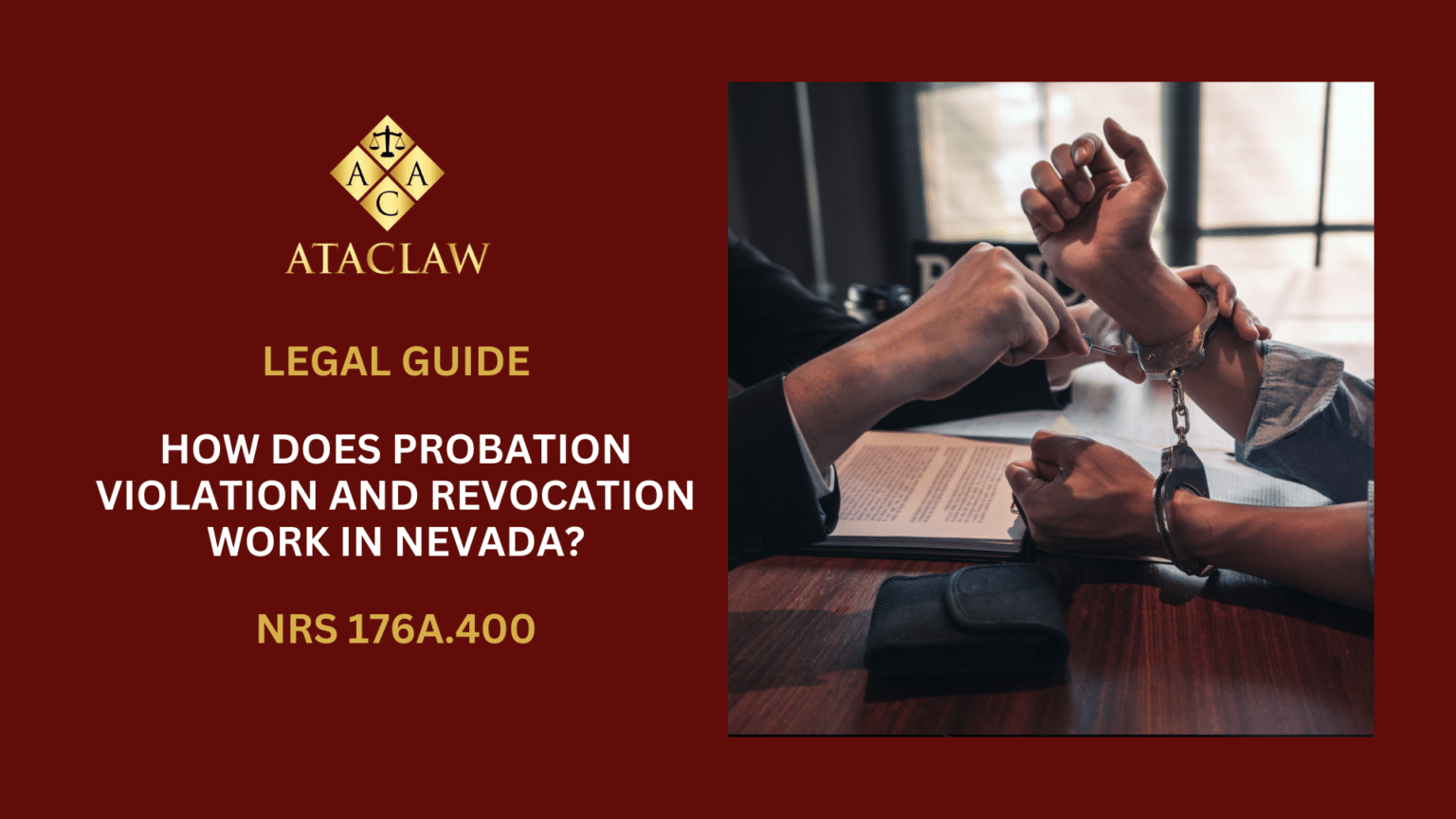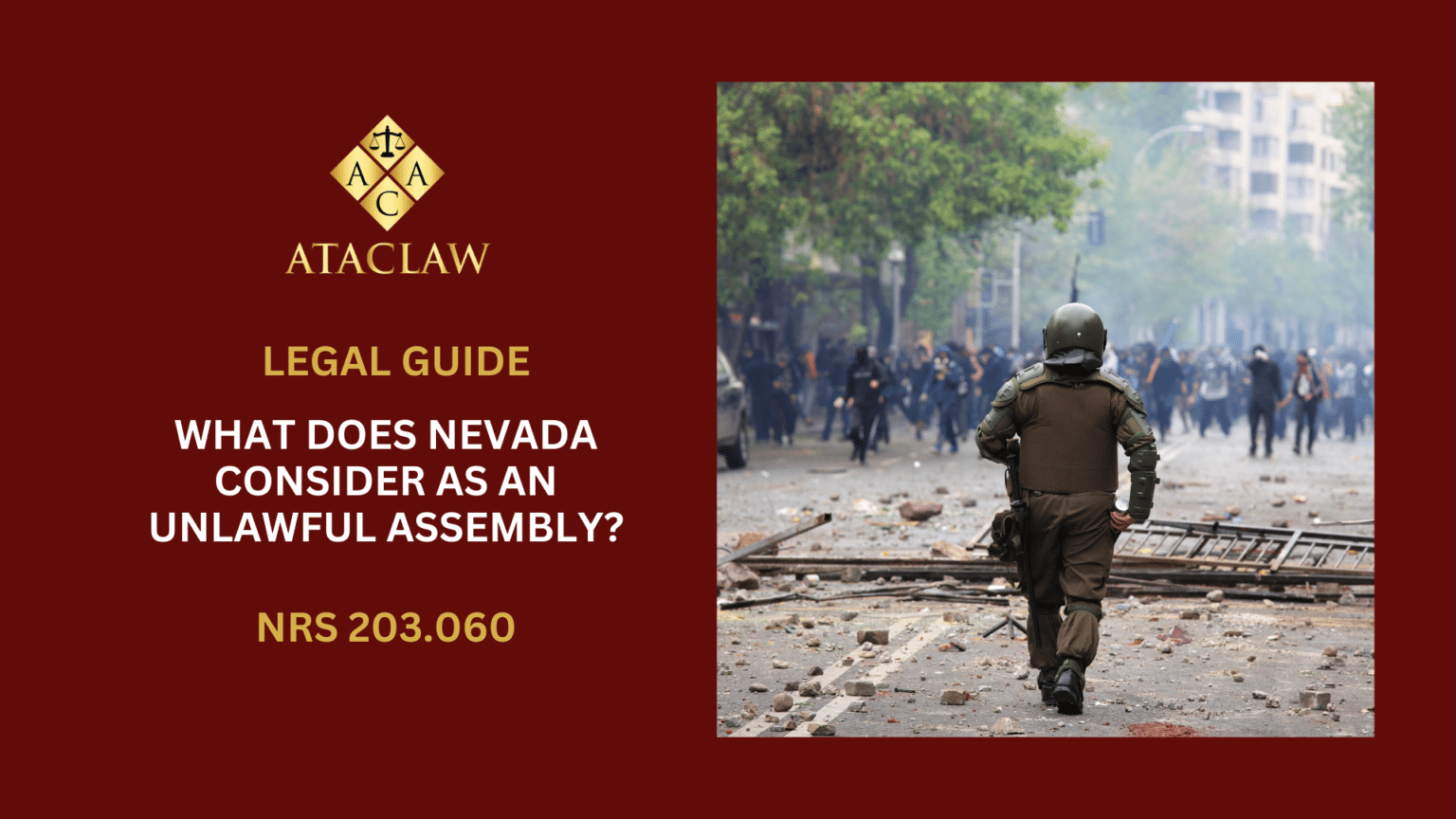Have you ever wondered how probation violation and revocation work in Nevada? Probation is a common sentencing option where individuals can serve their sentence outside of jail or prison, under specific conditions set by the court. However, failing to comply with these conditions can have serious consequences. Understanding how probation violations are determined, the process of probation revocation hearings, and the potential outcomes is essential for individuals on probation or facing probation-related issues. In this blog post, we will delve into these topics to provide you with a clearer understanding of the probation system in Nevada.
How does probation work in Nevada?
Probation is a viable alternative to incarceration for many individuals convicted of crimes in Nevada. However, it requires strict adherence to the conditions set by the judge. In Nevada, probation terms typically include requirements such as attending educational classes like DUI School for DUI cases, participating in counseling like Narcotics Anonymous for drug possession cases, obtaining restraining orders in domestic violence cases, paying fines or doing community service, undergoing random drug testing, making regular court appearances, being subject to electronic monitoring and intensive supervision, meeting with a probation officer (in felony and gross misdemeanor cases), abiding by a “stay out of trouble” order to avoid re-arrests or citations, and facing the possibility of a suspended sentence if probation terms are violated.
The length of probation depends on the severity of the criminal offense, ranging from 12 to 60 months. However, probation is generally not granted for serious felony cases like murder, first-degree kidnapping, sexual assault, attempted sexual assault of a child under 16, lewdness with a child, or habitual criminal offenses.
What constitutes a probation violation?
A probation violation occurs when an individual in Nevada is accused of failing to comply with a condition of their probation. There are five common probation violations:
- Failure to pay court-ordered fines or restitution.
- Missing a mandatory court appearance or failing to report to the probation officer.
- Refusal to take a mandatory drug test or testing positive for drugs.
- Non-compliance with court-ordered counseling or rehabilitation programs.
- Being arrested or cited for another criminal offense while on probation (usually excluding minor traffic violations).If there is probable cause to believe that a probation violation has occurred, one of three things may happen: the individual may be arrested and brought before a judge, receive a summons to appear in court, or have a bench warrant issued for their arrest. Following these circumstances, a hearing will be scheduled to determine whether the probation violation has taken place. If allowed to remain out of custody until the hearing, the individual must continue fulfilling the terms of their probation.
What is a probation revocation hearing?
A probation revocation hearing, also known as a “probation violation hearing” or “revo hearing,” is akin to a mini-trial where only a judge presides without a jury. Unlike a standard trial, the purpose of a probation revocation hearing is to determine whether an individual has breached the terms of their probation rather than establishing guilt or innocence of a criminal offense.
During a probation revocation hearing, individuals have similar rights as they would in a trial, including the right to testify, be represented by legal counsel, call and cross-examine witnesses, and present evidence. It is essential to note that probation revocation hearings are typically more challenging to prevail in compared to regular trials in Nevada. Prosecutors are not required to prove beyond a reasonable doubt that a probation violation occurred; instead, the evidence presented must reasonably convince the judge of the violation, which is a lower standard of proof.
At the conclusion of the hearing, the judge will determine whether the probation was violated. If ruled in favor of the individual, the probation will be reinstated without modifications. However, if a violation is found, the judge may opt to make the probation terms more stringent or revoke probation entirely.
What are the consequences of probation violations in Nevada?
The severity of the probation violation plays a significant role in determining the outcome. For minor violations, there is a higher chance that the judge will grant a “second chance” and allow the individual to continue their probation.
However, for more substantial violations, it is more likely that the judge will revoke the probation, reinstate the original sentence, and order the individual to jail or prison. Typically, probation violations in Nevada result in some form of incarceration, such as a period of imprisonment or residential confinement (commonly known as “house arrest”).
When imposing the final sentence, the judge takes into account various factors, including the seriousness of the alleged violation, the individual’s criminal record, the duration of successful compliance with probation terms and display of good behavior prior to the violation.
Navigating the probation system can be daunting, but having a solid understanding of probation violation and revocation processes is crucial. By staying informed about the requirements of probation, recognizing what constitutes a violation, and understanding the potential consequences, individuals can make informed choices and take appropriate steps to comply with their probation terms. If you are facing probation-related challenges or have concerns about probation violation in Nevada, it is wise to seek the guidance of a legal professional who specializes in probation matters. At ATAC Law, we are dedicated to providing the support and expertise needed to navigate the complexities of probation violation and revocation in Nevada. Contact us today for personalized assistance and representation in handling your probation-related issues.




